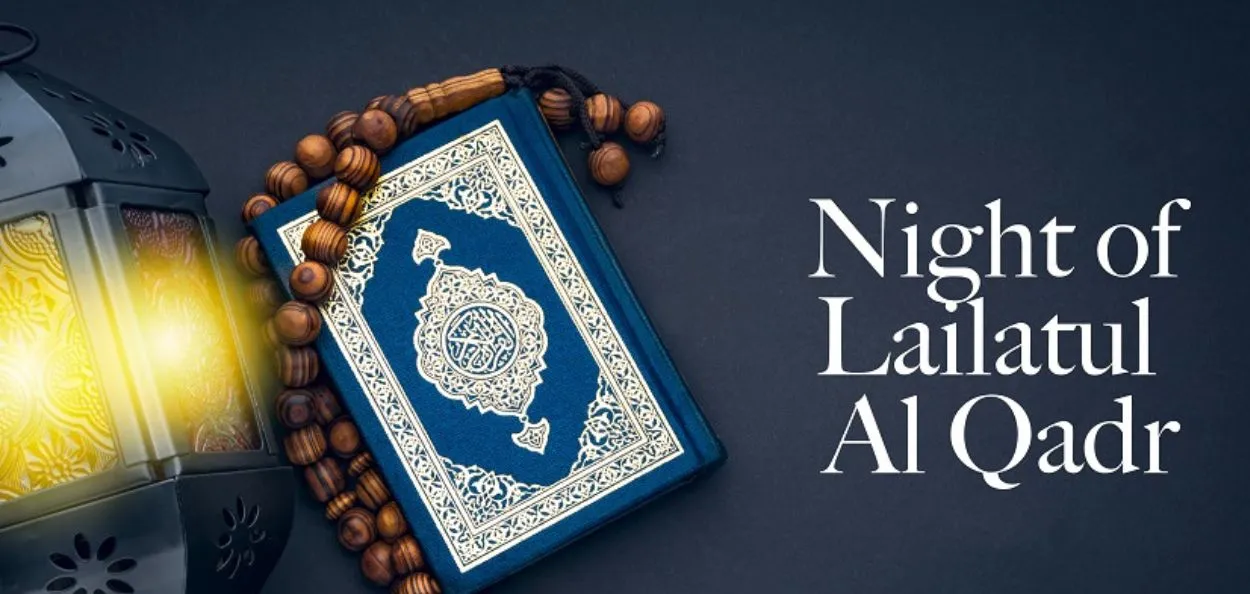
Shaista Fatima/ New Delhi
The month of Ramazan has entered its final 10 days and with it, Muslims around the world are managing their chores as per the last 10 nights.
It is believed that it was on the 27th night of the month of Ramazan that the Quran, was first revealed to the world.
According to the legend, the Quran was first transmitted to Prophet Muhammad on Laylatul Qadr by the angel Jibreel (Gabriel). It is called by various names, including “Night of Measures”, “Night of Decree”, and “Night of Value”.
The literal meaning of Laylatul Qadr is the ‘Night of Power’.
The last ten nights are said to bring Allah’s blessings and mercy, and it is also the time when one's penance is most noted.
The exact day and date of Laylatul Qadr 2023 are not disclosed. However, it is generally accepted that it is one of the nights with an odd number in the final 10 days.
Muslims in some parts of the world insist on the significance of the night before the 27th and view the final five odd nights i.e the 21st, 23rd, 25th, 27th, and 29th—as significant. While some consider the 23rd as the most sacred, the rest consider 19, 21, and 23 as the most important.
Some devouts perform Itikaf (solitude) as it is said the last ten nights are one of the best ways for self-observation and awareness. It is believed that going into solitude gives one time to reflect on one's actions and offers an opportunity to reconnect with the subconscious thus connecting with Allah.
During Itikaf, one should disconnect from the material world and focus on good deeds. It is also an ideal time for starting new religious practices or any resolutions that one wishes to continue for the year.
Even the social media is flooded with prayers that one can recite during the last ten days.
Hereby listed are a few prayers that one can recite n-number of times during the last peg of Ramazan.
"Allaahumma innaka 'afuwwun, tuhibb al- 'afwa, fa'ru 'anni" - (O Allah, You are the Most forgiving, and You love to forgive, so forgive me)
"Laa ilaaha illa Anta, subhaanaka inni kuntu min al-zaalimeen" - (There is no God but You, Glory to You; verily I was one of the wrongdoers). [Qur'an, 21:87]
"Ya Mâgallibal-qulüb, thabbit qalbi 'ala dinik" - (O Turner of the hearts, keep my heart firm on your religion).
"Rabbanã hab lanã min azwaiinã wadhurriyyatinã qurrata a'yunin wa- ij-alna lil'muttaqina imama" - (Our Lord, give us joy in our spouses and offspring. Make us good examples for the righteous). [Qur'an, 25:74]
"Rabbi ir' hamhuma kama rabbayani saghira" - (My Lord! Have mercy on both of them as they brought me up (when I was) small) [Qur'an, 17:24]
"Rabbana atina fee'dunya hasanatan wafee'l-akhirati hasanatan wagina athaba'nnar" (Our Lord! Grant us the good of this world and the Hereafter and protect us from the torment of the Fire). [Qur'an, 2:201]
"Rabbi inni lima anzalta ilayya min khairin fagir" - (My Lord, indeed I am, for whatever good You would send down to me, in need) [Quran, 28:24]
"Allahumma inni as'alukal-'afwa wal 'afiyah fid-dunya wal-akhirah" - (O Allah, I seek Your forgiveness and my wellbeing in this world and the Hereafter).
Ramazan is the ninth month of the Islamic Lunar calendar and is marked with great pomp and fervour. It is said that this holy month is significant because the Quran was unveiled during this auspicious time. At the end of Ramazan there’s a big three-day celebration called Eid al-Fitr, or the Festival of the Breaking of the Fast.
